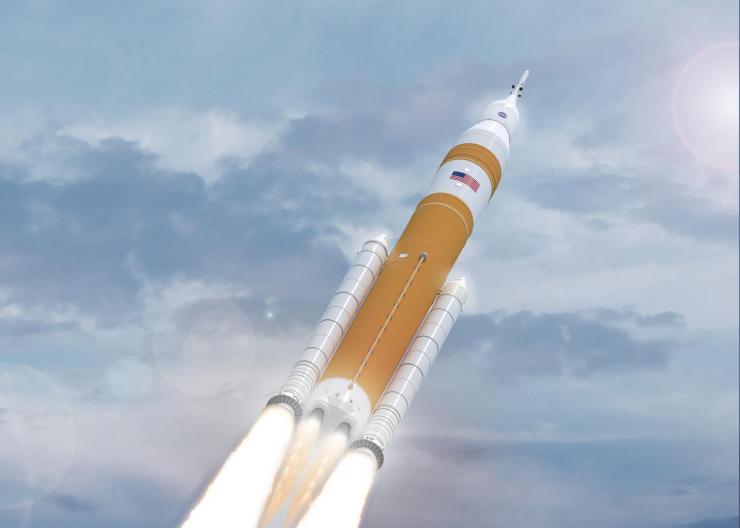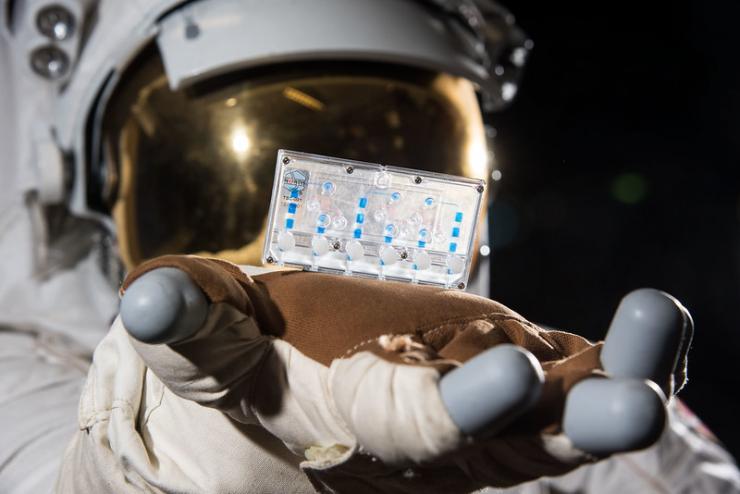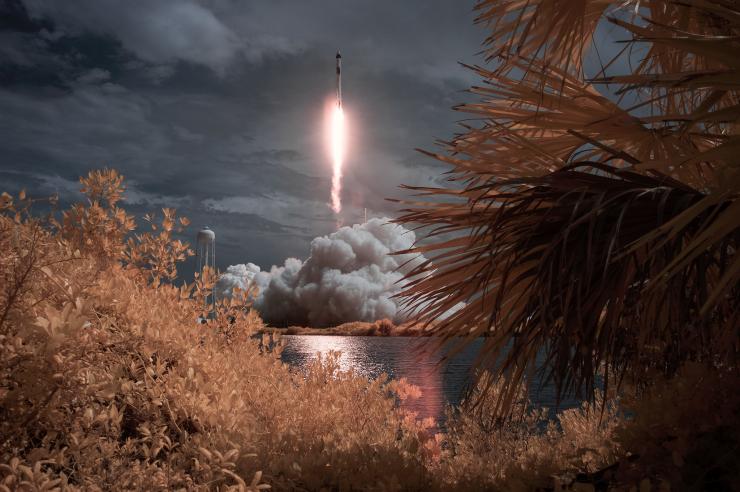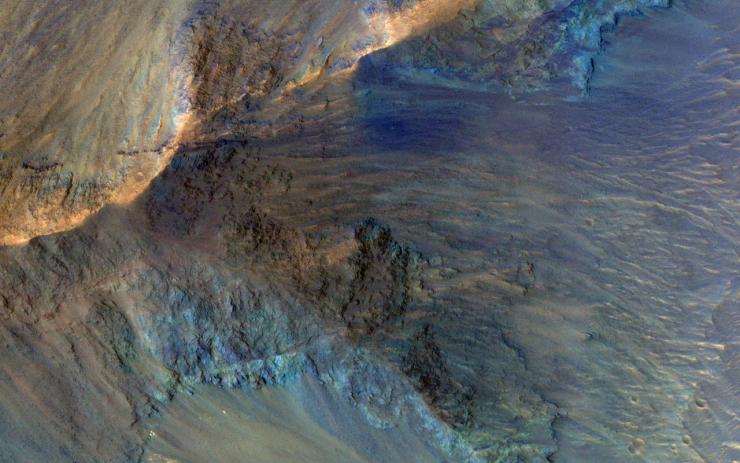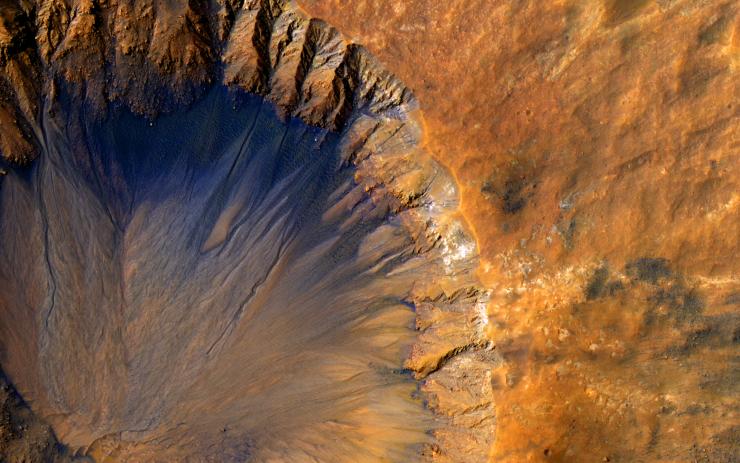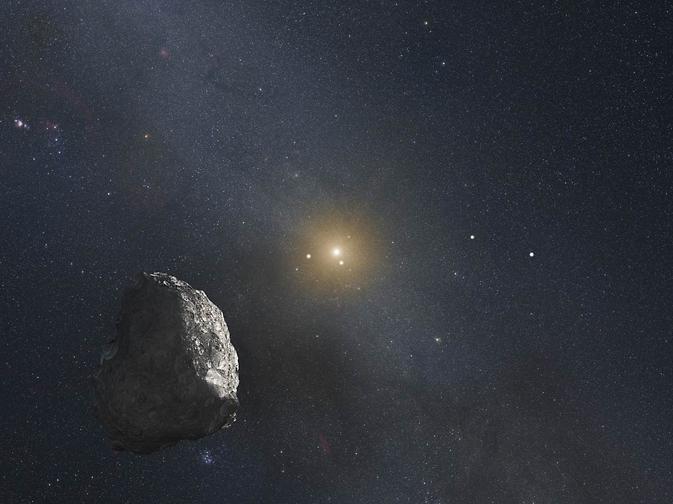Recent Award Announcements
TRISH offers multiple funding mechanisms with variable solicitation methods, funding amounts, durations, and review cycles. Find current funding opportunities.
TRISH's recent award announcements:
TRISH presents award to student annual Aerospace Medicine meeting
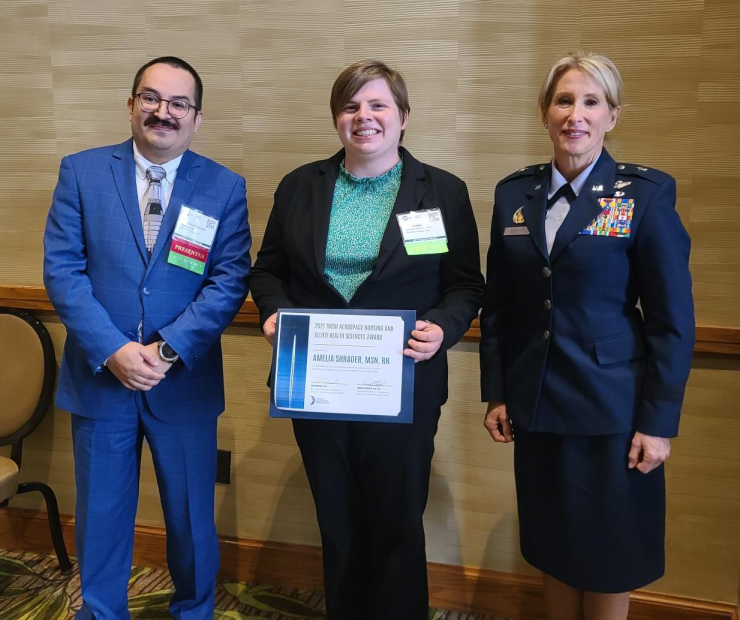
Translational Research Institute for Space Health (TRISH) at Baylor College of Medicine presented an award to Amelia Shrader, a University of Alabama - Huntsville student nurse, during the Aerospace Medical Association (AsMA) annual conference Aug. 28, 2021 – Sept. 2, 2021, held in Denver, Colorado.
The award facilitates scientific education in this unique and growing nursing field, by covering the registration costs to the 2022 AsMA annual conference in Reno, Nevada.
“TRISH is thrilled to present this award to Amelia Shrader, who has shown excitement in learning of the many ways science and research can help protect human health in space,” said TRISH chief medical officer and AsMA Associate Fellow Emmanuel Urquieta, M.D. “As we are seeing with the Delta variant of COVID-19, we know nursing students are the future of protecting the health of many. The skill and passion which enable nurses to endure dangerous conditions such as in pandemics, or extreme environments such as space, are truly inspiring. We want to support them by providing training opportunities.”
BRASH 2101 awards support studies on reducing metabolism
TRISH has granted nearly $4 million in awards to four outstanding researcher teams in response to its Biomedical Research Advances for Space Health (BRASH) 2101 solicitation.
2021 Postdoctoral Fellowships Announced
The Translational Research Institute for Space Health (TRISH) at Baylor College of Medicine has selected four outstanding early career scientists to receive its postdoctoral fellowship award to further their career in space health.
2020 Space Radiation Solicitation Awards Announced
TRISH has awarded five research teams to study and develop novel countermeasures against space-relevant ionizing radiation exposure.
2020 Postdoctoral Fellowships Announced
The Translational Research Institute for Space Health (TRISH) has announced the award of five postdoctoral fellowships, to support the careers of outstanding early career scientists working in space-translatable life sciences
Biomedical Research Advances for Space Health (BRASH) 1901 Selections Announced
The Translational Research Institute for Space Health (TRISH) at Baylor College of Medicine has selected six new biomedical research projects for space applications to receive two years of funding.
These projects aim to develop novel solutions to some of NASA’s highest priority risks to human health and performance during deep-space exploration missions.
2019 Postdoctoral Fellowships Announced
The Translational Research Institute for Space Health (TRISH) recently announced the award of postdoctoral fellowships to six outstanding early career scientists working in space-translatable life sciences.
Each awardee will undertake a two-year project that addresses challenges to astronaut health during deep-space exploration missions.
TRISH Awards $1.5M for Medical Innovations
On April 1, 2019, the Translational Research Institute for Space Health announced $1.5 million in grant awards to nine companies researching medical technologies for preserving astronaut health in space exploration.
These nine companies will advance their biomedical research into technologies for predicting and protecting astronaut health. Research topics include lab tests for use in space, multi-parameter health assessment and health surveillance systems, and onboard manufacturing of active ingredients for medication.
Award Recipients for BRASH 1801 Announced
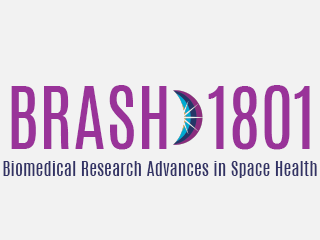
The Translational Research Institute for Space Health (TRISH) recently awarded 15 new investigative researchers via the Biomedical Research Advances for Space Health (BRASH) 1801 solicitation. The scope of these projects spans across six areas of interest in the hopes of delivering solutions for astronaut health in space.
• Predictive algorithms of health, behavior, and medical events
• Improving resilience through nucleotide-based therapy
• Non-pharmacological improvement of human performance
• Multipurpose edible plants for spaceflight applications
• New materials for shielding medications
• Test your expired medications
2018 Postdoctoral Fellowships Announced
The Translational Research Institute for Space Health (TRISH) recently welcomed two new postdoctoral fellows. Congratulations to Drs. Michael Friedman and Lindsey Haggett! See more information about their projects below.
Michael Friedman, Ph.D., Virginia Commonwealth University
Genetic Variability in Microgravity-Induced Bone and Muscle Loss
Mentor: Henry Donahue, Ph.D.
Lindsey Haggett, Ph.D., Baylor College of Medicine
Mechanisms of Protection from Radiation by Natural Proteins
Mentor: Susan Rosenberg, Ph.D.








 Credit
Credit
